 W
WPeter Buell Allen was a politician and military commander in New York State in the early 1800s and a pioneer of Vigo County and Terre Haute, Indiana.
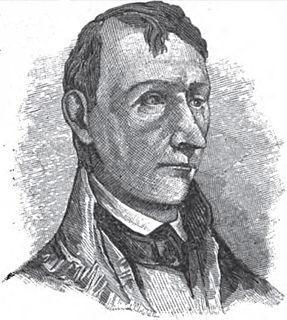 W
WBland Ballard was a soldier and statesman from Kentucky.
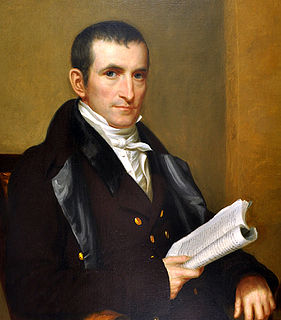 W
WElijah Brush was a lawyer and politician from Detroit, Michigan.
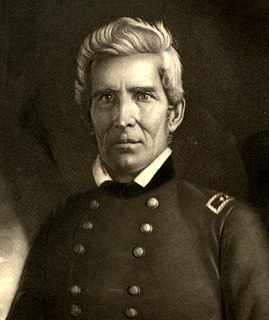 W
WWilliam Orlando Butler was a U.S. political figure and U.S. Army major general from Kentucky. He served as a Democratic congressman from Kentucky from 1839 to 1843, and was the Democratic vice-presidential nominee under Lewis Cass in 1848.
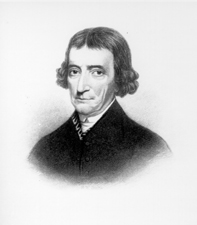 W
WJohn Chandler was an American politician and soldier of Maine. The political career of Chandler, a Democratic-Republican, was interspersed with his involvement in the state militia during both the American Revolutionary War and the War of 1812.
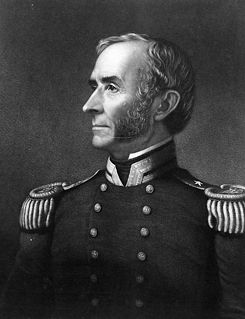 W
WCommodore David Conner was an officer of the United States Navy. He served in the War of 1812 and led the Home Squadron during the Mexican–American War. He led the successful naval assault during the siege of Veracruz which included the landing of 10,000 U.S. troops, the largest U.S. military amphibious assault at the time. He served on the Board of Navy Commissioners; as the first Chief of the Bureau of Construction, Equipment, and Repair; as a Special Diplomatic Agent to Mexico and commanded the Philadelphia Naval Yard.
 W
WWilliam Sitgreaves Cox (1790–1874) was an American sailor during the War of 1812. He was serving as acting lieutenant aboard the USS Chesapeake at the time of its capture by HMS Shannon. Cox was subsequently court-martialed for his actions during that engagement and discharged from the Navy. After advocacy from his descendants, his rank was restored by President Harry S Truman.
 W
WCommodore William Montgomery Crane was an officer in the United States Navy during the First Barbary War and the War of 1812. He was the son of General William Crane who was wounded at the Battle of Quebec while serving under Richard Montgomery in honor of whom he was given the middle name of Montgomery. His brother was Colonel Ichabod Crane who also served in the War of 1812 as well as the Mexican War.
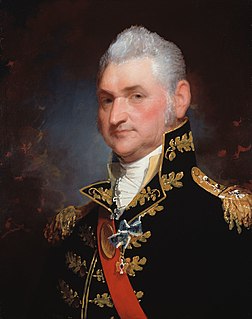 W
WHenry Dearborn was an American soldier and statesman. In the Revolutionary War, he served under Benedict Arnold in the expedition to Quebec, of which his journal provides an important record. After being captured and exchanged, he served in George Washington's Continental Army. He was present at the British surrender at Yorktown. Dearborn served on General Washington's staff in Virginia.
 W
WStephen Decatur Jr. was a United States naval officer and commodore. He was born on the eastern shore of Maryland in Worcester County. His father, Stephen Decatur Sr., was a commodore in the United States Navy who served during the American Revolution; he brought the younger Stephen into the world of ships and sailing early on. Shortly after attending college, Decatur followed in his father's footsteps and joined the U.S. Navy at the age of nineteen as a midshipman.
 W
WDaniel Dobbins was a sailing master in the United States Navy and captain in the United States Revenue Cutter Service. He fought in the War of 1812 and was in charge of the building of the ships at Erie, Pennsylvania that Oliver Hazard Perry commanded in the Battle of Lake Erie.
 W
WDavid Glasgow Farragut was a flag officer of the United States Navy during the American Civil War. He was the first rear admiral, vice admiral, and admiral in the United States Navy. He is remembered for his order at the Battle of Mobile Bay usually paraphrased as "Damn the torpedoes, full speed ahead" in U.S. Navy tradition.
 W
WFrancis Hoyt Gregory was an officer in the United States Navy during the War of 1812 through to the Civil War, serving then as a rear admiral.
 W
WJohn Gwinn III was a United States Navy officer born in Maryland. During the War of 1812, he was a POW after the Royal Navy had captured Frolic in 1814 and he later commanded Vandalia.
 W
WWilliam Hull was an American soldier and politician. He fought in the American Revolutionary War and was appointed as Governor of Michigan Territory (1805–13), gaining large land cessions from several American Indian tribes under the Treaty of Detroit (1807). He is most widely remembered, however, as the general in the War of 1812 who surrendered Fort Detroit to the British on August 16, 1812 following the Siege of Detroit. After the battle, he was court-martialed, convicted, and sentenced to death, but he received a pardon from President James Madison and his reputation somewhat recovered.
 W
WCommodore Jacob Nicholas Jones was an officer in the United States Navy during the Quasi-War with France, the First Barbary War and the Second Barbary War, and the War of 1812.
 W
WHubert Lacroix or Le Croix was an American soldier, trader, and politician who fought in the War of 1812. He was captured by the British following the surrender of Detroit and saved from charges of treason by his friend, the Shawnee chief Tecumseh. Lacroix later served two terms as a member of the Michigan Territorial Council.
 W
WGeorge Madison was the sixth Governor of Kentucky. He was the first governor of Kentucky to die in office, serving only a few weeks in 1816. Little is known of Madison's early life. He was a member of the influential Madison family of Virginia, and was a second cousin to President James Madison. He served with distinction in three wars – the Revolutionary War, Northwest Indian War, and War of 1812. He was twice wounded in the Northwest Indian War, and in the War of 1812 he was taken prisoner following the Battle of Frenchtown in Michigan.
 W
WJames Miller was the first governor of Arkansas Territory and a brevet brigadier general in the United States Army during the War of 1812. It was during his term as governor, and partly due to his influence, that the territory's capital was moved from Arkansas Post to Little Rock.
 W
WFoxhall Alexander Parker Sr. was an officer in the United States Navy. He was Commander-in-Chief of the East India Squadron, commanded the Home Squadron, and was commander of the USS Constitution.
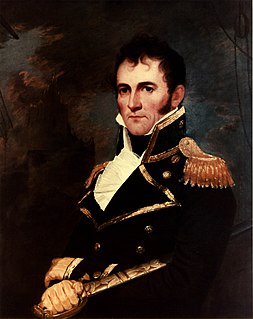 W
WDavid Porter was an officer in the United States Navy in the rank of captain and the honorary title of commodore. Porter commanded a number of U.S. naval ships, including the famous USS Constitution. He saw service in the First Barbary War, the War of 1812 and in the West Indies. On July 2, 1812, Porter hoisted the banner "Free trade and sailors' rights" as captain of USS Essex. The phrase resonated with many Americans. Porter was later court martialed; he resigned and then joined and became commander-in-chief of the Mexican Navy.
 W
WWinfield Scott was an American military commander and political candidate. He served as a general in the United States Army from 1814 to 1861, taking part in the War of 1812, the Mexican–American War, the early stages of the American Civil War and conflicts with Native Americans. Scott was the Whig Party's presidential nominee in the 1852 election, but was defeated by Democrat Franklin Pierce. He was known as Old Fuss and Feathers for his insistence on proper military etiquette, as well as the Grand Old Man of the Army for his many years of service.
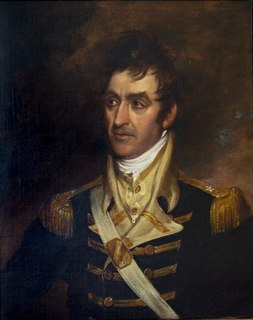 W
WWilliam Wadsworth was an officer in the New York State militia, before and during the War of 1812. As a Brigadier General, he commanded the New York militia contingent in the American army at the Battle of Queenston Heights. He waived his right to command over Lieutenant Colonel Winfield Scott, of the United States Army. During the battle, he faced the enemy at all times so he would not be shot in the back and appear to be cowardly. Waving his sword and swearing at the troops back across the river, hoping to instill the fighting spirit in them, he made a genuine but vain attempt to get the militia to cross and reinforce their position.
 W
WJames Winchester was an officer in the Continental Army in the American Revolutionary War (1775–1783) and a brigadier general during the War of 1812 (1812–1815). He commanded the American forces at the Battle of Frenchtown, which led to the Massacre of the River Raisin.
 W
WWilliam Henry Winder was an American soldier and a Maryland lawyer. He was a controversial general in the U.S. Army during the War of 1812. On August 24, 1814, as a brigadier general, he led American troops in their disastrous defeat at the Battle of Bladensburg, which led to the Burning of Washington by British troops. Winder was court-martialed for his role in the battle, but acquitted of any wrongdoing. He later became a leading attorney of the Baltimore bar.